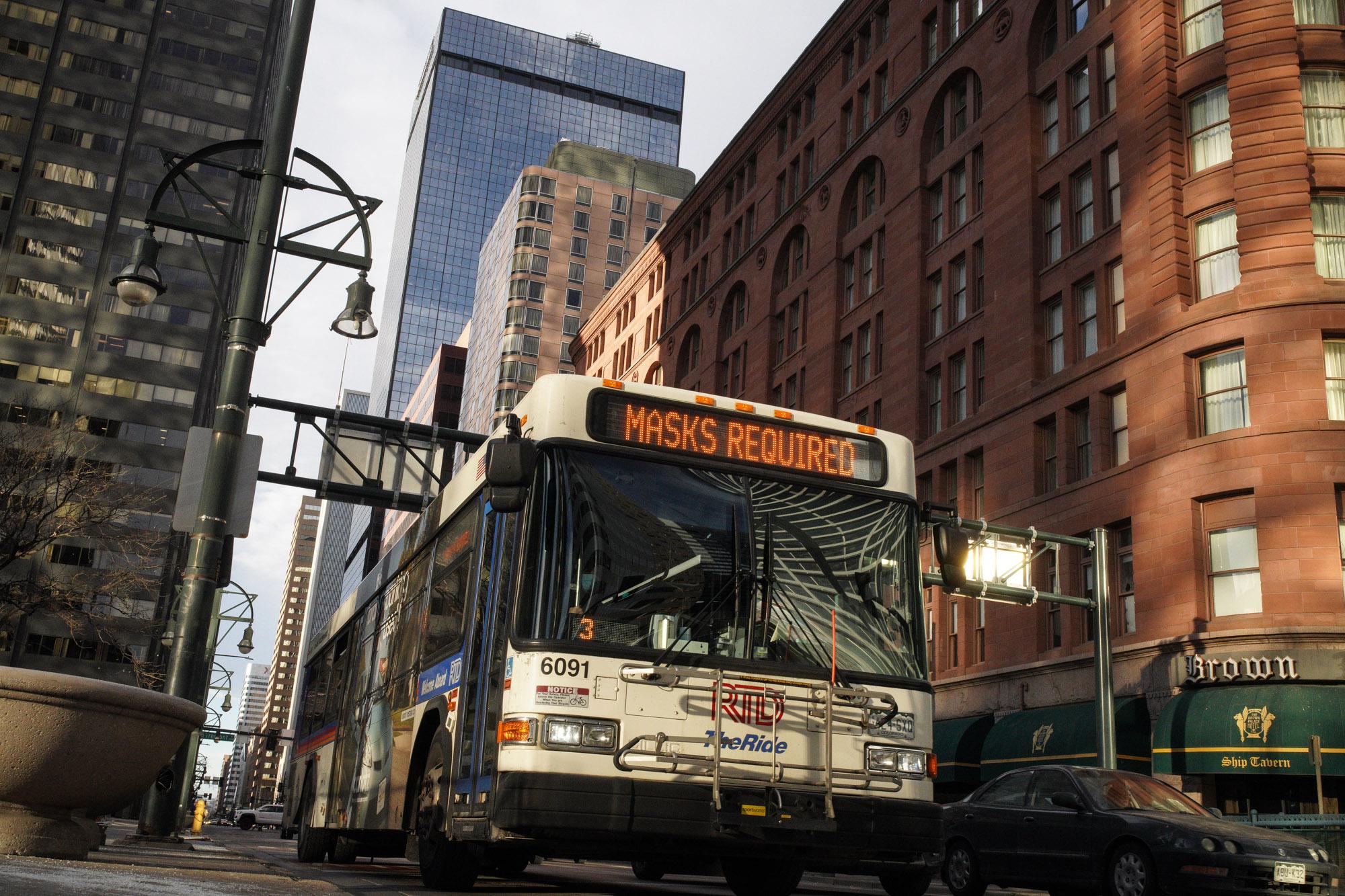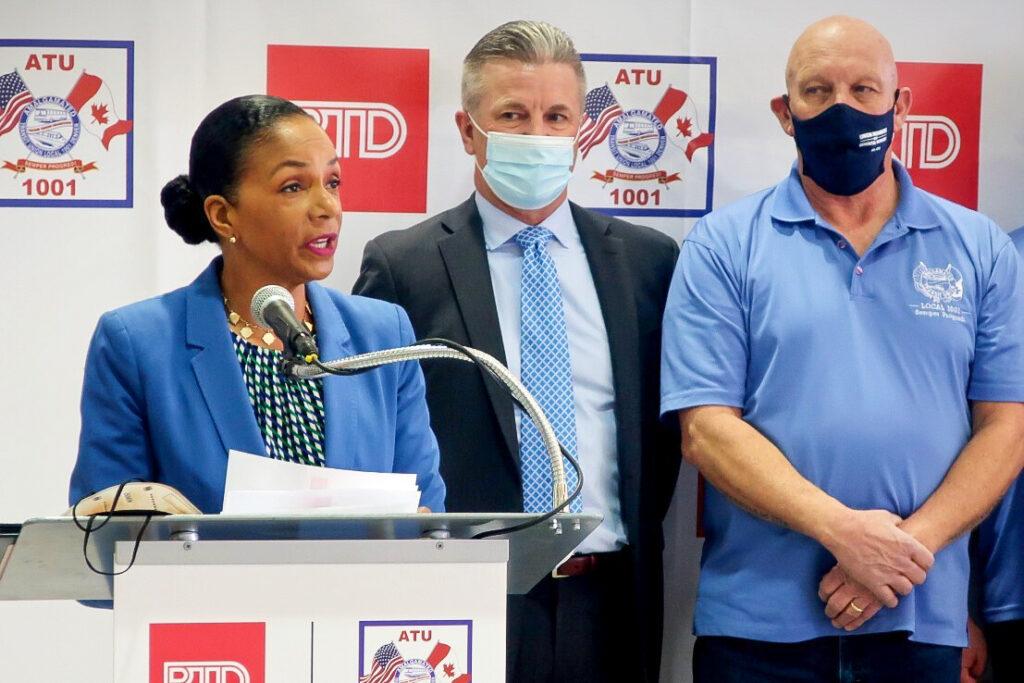
The Regional Transportation District and its largest union, which represents some 1,600 employees, have agreed to a new contract that will mean big raises for bus and train operators, mechanics and other key front-line workers.
RTD’s brass and union leaders held a rare joint press conference Friday morning to announce the three-year deal. Representatives from both sides said it is a key step toward retaining and attracting new workers to the understaffed transit agency.
“RTD is hiring,” said Debra Johnson, the agency’s CEO and general manager. “If you have considered a career in transit, now is a great time to pay us a visit.”
The contract includes a 16 percent pay raise this year and two additional 4 percent bumps in 2023 and 2024. In total, the initial pay bump pushes starting wages for bus drivers and light rail operators to $24 an hour and $30.25 for bus mechanics. The deal also includes improvements to working conditions, including better bathroom breaks and benefits, including health insurance, vacation and retirement.
A bulletin from Denver’s Amalgamated Transit Union 1001 says nearly 95 percent of its members voted to approve the deal.
“The feedback that we're getting from … people who have been here for a very long time are telling us this is the best contract they've ever seen,” said local ATU President Lance Longenbohn.
RTD is currently short more than 270 workers, including bus drivers, train operators, and mechanics. Longenbohn said he is optimistic the new contract will make those jobs more attractive and improve morale among the existing ranks. RTD’s ability to serve the routes on its current schedule without last-minute cancellations and to gradually increase service crushed by the COVID-19 pandemic will be the test of whether the deal is sufficient, he said.
“We feel like we're very well positioned,” Longenbohn said.
The deal will cost RTD $23.8 million in 2022, plus an additional $160 million in a one-time pension contribution. Those costs have been factored into the agency’s budget and won’t impede its ability to restore more service, Johnson said.

“We need to have people power,” Johnson said, adding: “There is room for that just because we’re starting so far behind where we should be.”
The hourly wage increase pushes RTD’s baseline pay ahead of some other government driving jobs. Highway maintenance specialists at the Colorado Department of Transportation start around $19.31 an hour, and Denver Public Schools school bus drivers are at $20.43. They now each offer incentives like hiring bonuses and housing stipends as well.
“Denver Public Schools are carefully monitoring the situation with wage increases from RTD as well as other districts,” Scott Pribble, a DPS media relations manager, said in an email. “We understand the importance of providing our employees with a competitive wage and how that directly affects our community. To that end, we are currently looking for solutions moving forward.”
A CDOT spokeswoman did not immediately respond to a request for comment.
Hourly wages for drivers can be higher in the private sector. But RTD and union officials say better fringe benefits can make government work more attractive.
Walter Palmgren, a light rail operator with seven years of experience, said working conditions have been rough in recent years, and he hopes this deal marks a “turning point” for improving those and bulking up the ranks.
“It can be very, trying and very tumultuous at times and takes a lot of patience,” he said. “It's definitely something that takes a unique individual, someone with a very dedicated sense of commitment to their community.”
Editor's note: This story was updated to correct the hourly pay rate for CDOT highway maintenance specialists.









